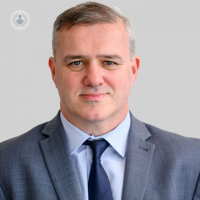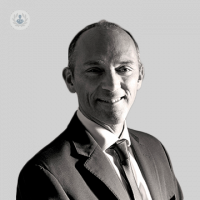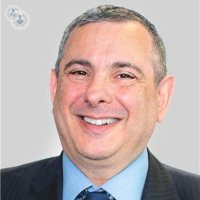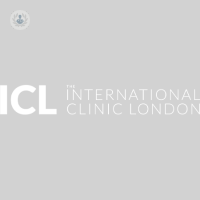What is epilepsy?
Epilepsy is a neurological disorder that causes recurrent seizures in the person suffering. These seizures appear when groups of nerve cells (neurons) in the brain send out erroneous signals. This can cause violent muscle spasms or even a loss of consciousness.
What are the symptoms of epilepsy?
The symptoms of epilepsy vary from one person to another. They emphasize the episodes of confusion, the loss of awareness and violent tremors. Some people have a strange sensation before suffering a seizure, which can be for example be a tingling sensation or emotional changes.
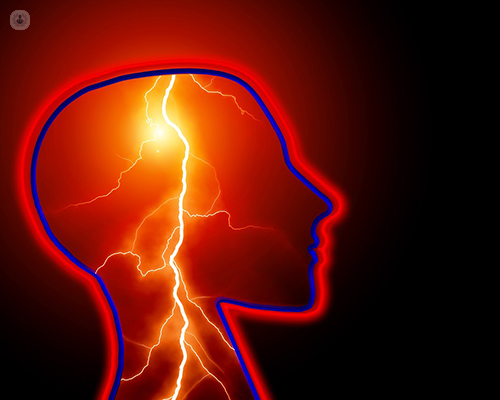
There are different categories of seizures which include:
- Focal seizures – caused by abnormal activity in one area of the brain. These can happen either without loss of consciousness (changes in smell and taste with involuntary jerking of a body part) or with impaired awareness (staring into space, and not responding normally).
- Generalised seizures – caused by abnormal activity in the whole brain, of which there are six types (absence seizures, tonic seizures, atonic seizures, clonic seizures, myoclonic seizures, tonic-clonic seizures).
What causes epilepsy?
There are multiple causes of epilepsy; from diseases, brain injuries and abnormal brain development. However, in many cases the cause that produces it is unknown.
Among the most common causes are:
- traumatic brain injury
- dementia
- brain tumour
- abnormal blood vessels in the brain
- infections
- stroke
Can epilepsy be prevented?
There is no form of prevention for epilepsy, however, eating a proper diet, sleeping the recommended amount of hours and avoiding drugs and alcohol can decrease the likelihood of triggering seizures in people with epilepsy.
What is the treatment for epilepsy?
The treatment for epilepsy consists of anti-seizure medication, lifestyle changes (e.g. adopting the ketogenic diet has shown some success in reducing seizures) and surgery. Surgery involves removing part of the brain causing the seizures, however, this is not always possible. Additional therapies can include vagus nerve stimulation and deep brain stimulation. A neurologist works to treat epilepsy.
11-13-2012 10-13-2023Epilepsy
Dr Dougall McCorry - Neurology
Created on: 11-13-2012
Updated on: 10-13-2023
Edited by: Aoife Maguire
What is epilepsy?
Epilepsy is a neurological disorder that causes recurrent seizures in the person suffering. These seizures appear when groups of nerve cells (neurons) in the brain send out erroneous signals. This can cause violent muscle spasms or even a loss of consciousness.
What are the symptoms of epilepsy?
The symptoms of epilepsy vary from one person to another. They emphasize the episodes of confusion, the loss of awareness and violent tremors. Some people have a strange sensation before suffering a seizure, which can be for example be a tingling sensation or emotional changes.

There are different categories of seizures which include:
- Focal seizures – caused by abnormal activity in one area of the brain. These can happen either without loss of consciousness (changes in smell and taste with involuntary jerking of a body part) or with impaired awareness (staring into space, and not responding normally).
- Generalised seizures – caused by abnormal activity in the whole brain, of which there are six types (absence seizures, tonic seizures, atonic seizures, clonic seizures, myoclonic seizures, tonic-clonic seizures).
What causes epilepsy?
There are multiple causes of epilepsy; from diseases, brain injuries and abnormal brain development. However, in many cases the cause that produces it is unknown.
Among the most common causes are:
- traumatic brain injury
- dementia
- brain tumour
- abnormal blood vessels in the brain
- infections
- stroke
Can epilepsy be prevented?
There is no form of prevention for epilepsy, however, eating a proper diet, sleeping the recommended amount of hours and avoiding drugs and alcohol can decrease the likelihood of triggering seizures in people with epilepsy.
What is the treatment for epilepsy?
The treatment for epilepsy consists of anti-seizure medication, lifestyle changes (e.g. adopting the ketogenic diet has shown some success in reducing seizures) and surgery. Surgery involves removing part of the brain causing the seizures, however, this is not always possible. Additional therapies can include vagus nerve stimulation and deep brain stimulation. A neurologist works to treat epilepsy.


What causes epilepsy and do seizures shorten a person’s life?
By Dr Dora Lozsadi
2025-01-15
Epilepsy is a neurological disease, characterised by attacks or seizures that recur in episodes over time. Doctor Dora Lozsadi talks about the underlying brain abnormality that causes epilepsy and how epilepsy can reduce a person's life expectancy. See more


Vagus Nerve Stimulation
By Mr Richard Selway
2025-01-15
Epileptic seizures can be dangerous and require treatment. In this article, we spoke with Mr Richard Selway, a highly experienced neurosurgeon who is based in London. He let us know how seizures can be treated with Vagus Nerve Stimulation (VNS). We found out some of the risks and side effects from this surgery and what the steps are to prepare for the procedure See more


Women and epilepsy (part 1): hormones, periods and contraception
By Professor Matthew Walker
2025-01-14
The female body can have a profound effect on epilepsy. Unbeknownst to many, hormones, menstrual cycles and contraception measures play a part in the management of the condition. Matthew Walker, a leading specialist and researcher in the field of epilepsy, explains the connection between women and epilepsy. See more


How can epileptic seizures be prevented?
By Dr Anke Hensiek
2025-01-14
We got in contact with leading consultant neurologist, Dr Anke Hensiek, to discover how epileptic seizures can be prevented. In this article, she highlights how dangerous epilepsy can be without adequate treatment. Find out what the main triggers are, whether epilepsy can ever be cured and whether foods (and stimulants like coffee) can trigger seizures. See more
Experts in Epilepsy
-
Professor Matthew Walker
NeurologyExpert in:
- Epilepsy
- Parasomnias
- Restless legs syndrome
- Narcolepsy
- Hypersomnia
- Sleepwalking
-
Mr Richard Selway
NeurosurgeryExpert in:
- Epilepsy
- Epilepsy surgery
- Spinal surgery
- Trigeminal neuralgia
- Brain tumour
- Parkinson's disease
-
Dr Dougall McCorry
NeurologyExpert in:
- Neurological disorders
- Epilepsy
- Headache
- Medicolegal
- Amnesia
- Whiplash
-
Dr Jeremy Rees
NeurologyExpert in:
- Neuro-oncology
- Brain tumour
- Epilepsy
- Headache
- Paraneoplastic syndromes
- Migraine
-
Dr Anke Hensiek
NeurologyExpert in:
- Neurological disorders
- Headache
- Multiple sclerosis
- Epilepsy
- Parkinson's disease
- Memory disorder
- See all

Cleveland Clinic London Hospital
Cleveland Clinic London Hospital
33 Grosvenor Place, SW1X 7HY
No existe teléfono en el centro.
By using the telephone number provided by TOP DOCTORS, you automatically agree to let us use your phone number for statistical and commercial purposes. For further information, read our Privacy Policy
Top Doctors

The International Clinic London
The International Clinic London
10 Harley Street
No existe teléfono en el centro.
By using the telephone number provided by TOP DOCTORS, you automatically agree to let us use your phone number for statistical and commercial purposes. For further information, read our Privacy Policy
Top Doctors

Cleveland Clinic Portland Place Outpatient Centre
Cleveland Clinic Portland Place Outpatient Centre
24 Portland Place, W1B 1LU
No existe teléfono en el centro.
By using the telephone number provided by TOP DOCTORS, you automatically agree to let us use your phone number for statistical and commercial purposes. For further information, read our Privacy Policy
Top Doctors
-
Cleveland Clinic London Hospital
33 Grosvenor Place, SW1X 7HY, Central LondonExpert in:
- Cardiology
- Colorectal surgery
- Minimal access surgery (keyhole surgery)
- Gallbladder surgery
- Diagnostic Imaging
- Ultrasound
-
The International Clinic London
10 Harley Street, W1G Marylebone LondonExpert in:
- Addictions
- Anxiety
- Panic attacks
- Depression
- Fertility
- Child Psychology
-
Cleveland Clinic Portland Place Outpatient Centre
24 Portland Place, W1B 1LU, Central LondonExpert in:
- Diagnosis of Cancer
- Diagnostics
- Women’s health
- Sports Medicine
- General practice
- Health check up
- Most viewed diseases, medical tests, and treatments
- Immunotherapy
- Alzheimer's disease
- Tension headache
- Peripheral nerve block
- Child nutrition
- Migraine
- Maternal mental health
- Paediatric rheumatology
- Autoimmune diseases
- Joint pain
